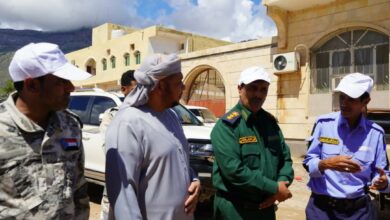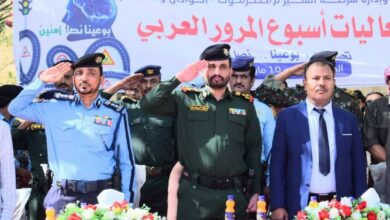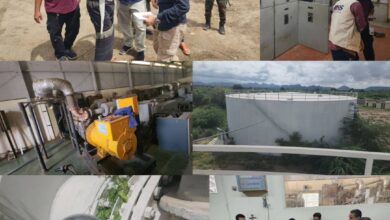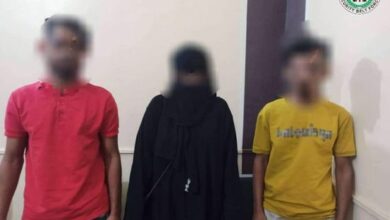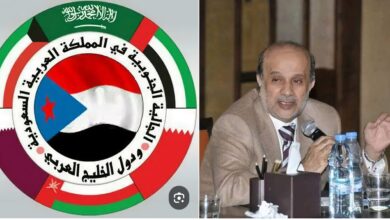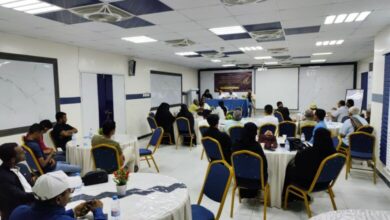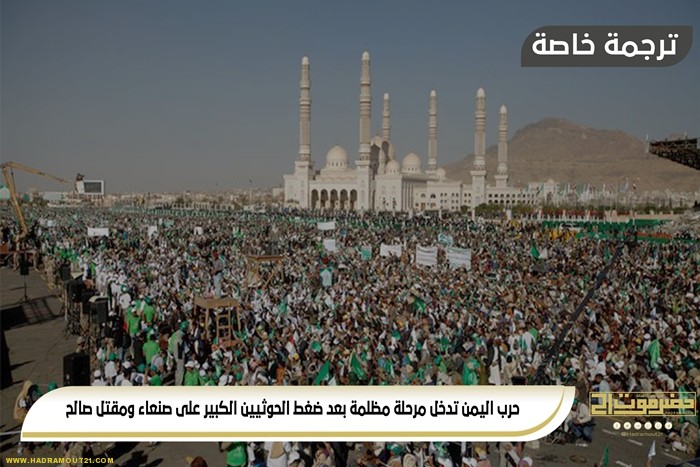
صنعاء (حضرموت21) ترجمة خاصة نقلا عن nytimes
شدد المتمردون الحوثيون الذين يسيطرون على صنعاء العاصمة اليمنية قبضتهم على المدينة وشعبها في الاسابيع الاخيرة واغلقوا الدخول الى الانترنت وحجب مواقع التواصل الاجتماعي وارسلوا عناصر مسلحة لمهاجمة منازل الأشخاص المشتبه بانتمائهم الى حركة المعارضين لهم .
وقد احتجز الحوثيون المئات من المواطنين، وارتفعت أسعار السلع الأساسية مثل الغذاء والوقود، مما أدى إلى تفاقم أزمة إنسانية خطيرة أصلا.
إن توطيد السلطة من قبل المتمردين، الذين يطبقون سياسات إيران ، هو فصل جديد قاتم في الحرب في اليمن ويسلط الضوء على الحواجز الهائلة التي تواجه الجهود الدولية لإنهائها.
كما يشدد على فشل خصوم الحوثيين، الذين يشملون قوات يمنية متمثلة في مقاومة وجيش وطني ودول عربية مثل السعودية مجتمعة في تحالف عربي عسكري لتحويل العزلة السياسية للمتمردين إلى ميزة في ساحة المعركة.
بدأ هذا الشهر بحدث كان من الممكن أن يغير مسار الحرب: قتل الحوثيون علي عبد الله صالح، الرئيس السابق لليمن الذي كان الحليف الأبرز للحوثيين في الحرب .
كان السيد صالح، الذي شغل منصب الرئيس لمدة ثلاثة عقود قبل ان يتم خلعة عام 2012 بعد انتفاضة الربيع العربي، شخصية بارزة في السياسة اليمنية. في التحالف مع الحوثيين، وهي حركة إسلامية غير متطورة من شمال اليمن، قدم السيد صالح كلا من الفطنة السياسية والقوات المقاتلة المدربة تدريبا جيدا، مجهزة تجهيزا جيدا.
كما أتاح تحالف الحوثي مع حزب السيد صالح السياسي، حزب المؤتمر الشعبي العام، للمتمردين قاعدة سياسية أوسع مما كان سيحصلون عليه.
ولكن في النهاية، ندد السيد صالح بالحوثيين وقال إنه يريد “صفحة جديدة” مع السعودية لإنهاء الحرب. في 4 ديسمبر / كانون الأول، فقتلة الحوثيون مع الكثير من عناصر حزب المؤتمر الشعبي العام .
وقد سعت السعودية والأعداء الآخرون للحوثيين منذ فترة طويلة إلى التفريق بين صالح والحوثيين معتقدين أن قوات الحوثيين سوف تتضعف بسهولة إذا تحول الموالون لصالح صالح لهم. لكنهم لم يكونوا مستعدين للاستفادة من الوضع عندما حدث فعلا، وقد بذل الحوثيون كل ما في وسعهم للتأكد من أن الموالين لصالح المتبقين لا يشكلون أي تهديد.
وقد أدى ذلك إلى حملة قمع في صنعاء وغيرها من المناطق التي يسيطر عليها الحوثيون، حيث قام المقاتلون الحوثيون باعتقال المئات من الموالين للسيد صالح وقتل البعض منهم ، وفقا لما ذكره عادل الشوجة، زعيم حزب السيد صالح الموجود في القاهرة.
وقال ان حوالى 45 من ابرز 50 عضوا في الحزب ما زالوا في صنعاء، وان حوالى 15 منهم تحت الاقامة الجبرية. والباقي مختبئ او فر الى محافظات مجاورة ، ويبحث البقية عن مخرج امن من صنعاء والهروب مثل البقية .
وقال السيد عادل متحدثا عن زوجته وأطفاله الذين لا يزالون في المدينة “إنهم يعيشون في خوف”. واضاف “انهم يقضون كل دقيقة يتساءلون عما إذا كان سيتم القبض عليهم”.
جاء مقتل السيد صالح بعد أن أقام اتصالات جديدة مع المملكة العربية السعودية وحلفائها، التي تأمل أن يتمكن هو وممولوه من تحويل تيار الحرب.
حتى الدول الغربية مثل الولايات المتحدة كانت تأمل في أن حزب السيد صالح يمكن أن يلعب دورا في المفاوضات لإنهاء الصراع الذي بدأ في عام 2014 عندما استولى الحوثيين والقوات الموالية للسيد صالح على صنعاء، وارسال الحكومة الشرعية المعترف بها الى الخارج .
بعد ان استولى الحوثيون وقوات صالح ، بدأ ائتلاف بقيادة السعودية سمي بالتحالف العربي وشن الحرب على الميليشيات بكل المحافظات التي تمت السيطرة عليها
لكن أعضاء حزب السيد صالح الذين تمت مقابلتهم مؤخرا قالوا إنه وبعد وفاة صالح تحطمت كل الطموحات بشن انتفاضة ضد الحوثيين .
وقال المحللون إن المؤتمر الشعبي العام لم يكن متحدا حقا برؤية مشتركة بقدر ما عقده معا قيادة السيد صالح وقدرته على توزيع المحسوبية. وبمجرد أن ذهب صالح تفكك الحزب كاملا .
على الرغم من أن العديد من أعضاء انتفظوا على الحوثيين لقتل السيد صالح، قلة منهم أرادوا أحداث تغيير والانضمام إلى التحالف بقيادة السعودية . وأولئك الذين قد أرادوا محاربة الحوثيين يفتقرون إلى القدرة على القيام بذلك.
وقال عاصم الشميري، الصحفي اليمني في صنعاء القريب من الحزب: “هناك اكتئاب عميق أصاب معظم الناس بعد رحيل صالح، الذين رأوا أنه الحل الأخير للتخلص من الأزمة”.
وقال “ان العاصمة تشهد اسوأ ايام من حيث الوضع الانسانى والنفسى والعسكرى والسياسى وان القلق يحوم فوق الجميع”.
كما يعتقد العديد من الحوثيين أنهم دمروا حزب السيد صالح.
وقال أحمد عبد الوالي دهب، قائد الحوثي الذي تواصل عبر الهاتف: “لقد مات الحزب”. “من الواضح أن أولئك الذين هم تحت الإقامة الجبرية لن يصلوا الى أي شخص ، ولا يمكن ان يذهبوا الى أي مكان .
وللحفاظ على أعدائهم من التآمر ضدهم، استخدم الحوثيون سيطرتهم على البنية التحتية للاتصالات في اليمن لحظر الوصول إلى الإنترنت لعدة أيام في نهاية المطاف ومنع مواقع التواصل الاجتماعي مثل الفيسبوك.
وقال دهب: “ليس الأمر صعبا. “لدينا شركات اتصالات في صنعاء مليئة بالأشخاص الذين تلقوا تعليما في الخارج. كان علينا أن نوقف أعدائنا من التواصل مع بعضهم البعض “.
وتعاني المناطق الخاضعة للحوثيين بالفعل من نقص حاد في الكهرباء، و أسهم في أسوأ تفشي للكوليرا في العالم. ولم يحصل العديد من موظفي الخدمة المدنية على رواتب منذ اكثر من عام، وادى ذلك بالعديد من الاسر المصنفة بالطبقة الوسطى الى الفقر .
وقد سعى التحالف الذي تقوده السعودية إلى إيجاد طرق أخرى لزيادة الضغط على الحوثيين.
وفي هذا الشهر التقى ولي العهد الأمير محمد بن سلمان من المملكة العربية السعودية ومحمد بن زايد آل نهيان ولي عهد أبوظبي في دولة الإمارات العربية المتحدة مع قادة من حزب الإصلاح و يعتبر الإصلاح الحزب اليمني الفرع للإخوان المسلمين، وصنفتة المملكة العربية السعودية والامارات سابقا من ضمن المنظمات الإرهابية .
الإمارات العربية المتحدة .قال مسؤولون فيها ان الحزب قطع علاقاته مع جماعة الاخوان المسلمين الدولية و يبدو انها كافية لضمان دول الخليج في بحثها عن الحلفاء.
وقال عبد الوهاب العناسي الأمين العام للإصلاح عبر الهاتف من الرياض العاصمة السعودية إن الاجتماع كان “نقطة تحول” وأن الحزب طلب منه التواصل مع فلول حزب صالح لرؤية عن العمل معهم ضد الحوثيين.
حتى الآن، كان لديهم القليل من الحظ.
وقال السيد أناسي: “نحن ببساطة نواجه صعوبة بالغة في الوصول إليهم”. “هذه أوقات مربكة. وسوف يستغرق بعض الوقت بالنسبة لنا للحصول على صورة واضحة لما يحدث في الواقع في صنعاء “.
للاطلاع على المقالة الاصلية :
Yemen’s War Enters a Dark Stage as Rebels Squeeze the Capital
BEIRUT, Lebanon — The rebels who control Sana, the capital of Yemen, have tightened their grip on the city and its people in recent weeks, shutting off access to the internet, blocking social media sites and sending gunmen to raid the homes of anyone they suspect of opposing them.
Hundreds of people have been detained, and prices for basic goods like food and fuel are soaring, threatening to exacerbate an already dire humanitarian crisis.
The power consolidation by the rebels, who are aligned with Iran and known as the Houthis, is a grim new chapter in the war in Yemen and highlights the tremendous barriers facing international efforts to end it.
It also underlines the failure of the Houthis’ foes, who include other Yemeni forces and Arab countries like Saudi Arabia, to turn the rebels’ political isolation into an advantage on the battlefield.
This month began with an event that could have altered the course of the war: the killing by Houthi forces of Ali Abdullah Saleh, the former president of Yemen who had been the rebels’ most important ally in the war.
Mr. Saleh, who had served as president for three decades before being pushed out in 2012 after an Arab Spring uprising, was a towering figure in Yemeni politics. In allying with the Houthis, an unsophisticated Islamist movement from northern Yemen, Mr. Saleh provided both political acumen and well-trained, well-equipped fighting forces.
The Houthi alliance with Mr. Saleh’s political party, the General People’s Congress, also gave the rebels a wider political base than they otherwise would have had.
But in the end, Mr. Saleh denounced the Houthis and said he wanted to turn a “new page” with Saudi Arabia to end the war. On Dec. 4, the Houthis killed him for it.
Saudi Arabia and the Houthis’ other enemies had long sought to split Mr. Saleh and the rebels, believing that the Houthis’ forces would fold easily if Mr. Saleh’s loyalists turned against them. But they were unprepared to capitalize on the situation when it actually happened, and the Houthis have since done all they can to make sure that Mr. Saleh’s remaining loyalists pose no threat.
That has led to the crackdown in Sana, and other Houthi-controlled areas, with Houthi fighters arresting hundreds of Mr. Saleh’s loyalists and locking them up, said Adel al-Shoga, a leader of Mr. Saleh’s party who is in Cairo.
About 45 of the party’s top 50 leaders are still in Sana, he said, and about 15 of them are under house arrest. The rest are in hiding, looking for ways to sneak themselves and their families out of the city.
“They are living in fear,” Mr. Shoga said of his wife and children, who remain in the city. “They spend every minute wondering if they will get caught.”
Mr. Saleh’s killing came after he had established new contacts with Saudi Arabia and its allies, which hoped that he and his loyalists could turn the tide of the war. Even Western nations like the United States had hoped that Mr. Saleh’s party could play a role in negotiations to end the conflict, which began in 2014 when the Houthis and forces loyal to Mr. Saleh seized Sana, later sending the internationally recognized government into exile.
A few months later, a coalition led by Saudi Arabia began a punishing bombing campaign that has failed to push the Houthis back while intensifying a humanitarian crisis.
But members of Mr. Saleh’s party interviewed recently said that instead of turning the party against the Houthis, Mr. Saleh’s death had shattered it.
The General People’s Congress was never really united by a shared vision as much as it was held together by Mr. Saleh’s leadership and his ability to distribute patronage, analysts said. Once he was gone, little held the group together.
Even though many members seethed at the Houthis for killing Mr. Saleh, few wanted to change sides and join the Saudi-led coalition that had been bombing them for years. And those who may have wanted to fight the Houthis lacked the ability to do so.
“There is deep depression occupying most of the people after the departure of Saleh, whom they saw as the last solution to get rid of the crisis,” said Asem Alshamiri, a Yemeni journalist in Sana who is close to the party.
“The capital is witnessing the worst days in terms of the humanitarian, psychological, military and political situation, and anxiety is hovering over everyone,” he said.
Many Houthis, too, believe they have destroyed Mr. Saleh’s party.
“The party is dead,” said Ahmed Abdel-Wali Dahab, a Houthi commander reached by phone. “The ones who are under house arrest are obviously not going to reach out to anyone, and they can’t go anywhere. And everyone else is on the run.”
To keep their enemies from conspiring against them, the Houthis have used their control of Yemen’s communications infrastructure to shut off access to the internet for days on end and to block social media sites like Facebook.
“It is not hard,” Mr. Dahab said. “We have telecommunication companies in Sana full of people who have been educated abroad. We had to stop our enemies from communicating with each other.”
Some analysts predict that the political isolation of the Houthis will catch up with them, either because the opposition to their rule will become too hard to manage or because they will run out of money, leaving them unable to provide services in areas where they are the de facto government.
The areas under their control already suffer dire electricity shortages, which have contributed to the world’s worst contemporary outbreak of cholera. And many civil servants have not received salaries in more than a year, pushing many families that used to be middle class into poverty.
The Saudi-led coalition has sought other ways to increase the pressure on the Houthis.
This month, Crown Prince Mohammed bin Salman of Saudi Arabia and Mohammed bin Zayed al-Nahyan, the crown prince of Abu Dhabi in the United Arab Emirates, met with leaders from Islah, the political party long considered the Yemeni branch of the Muslim Brotherhood, which Saudi Arabia and the U.A.E. consider a terrorist organization.
U.A.E. officials said the party had broken ties with the international Muslim Brotherhood, which was apparently enough of a guarantee for the Persian Gulf nations in their search for allies.
Abdelwahab al-Anasi, the secretary general of Islah, said by phone from Riyadh, the Saudi capital, that the meeting was a “turning point,” and that the party had been asked to reach out to remnants of Mr. Saleh’s party to see about working with them against the Houthis.
So far, they have had little luck.
“We are simply having an extremely difficult time reaching them,” Mr. Anasi said. “These are confusing times. It will take a while for us to get a clear picture of what is actually happening in Sana.”

